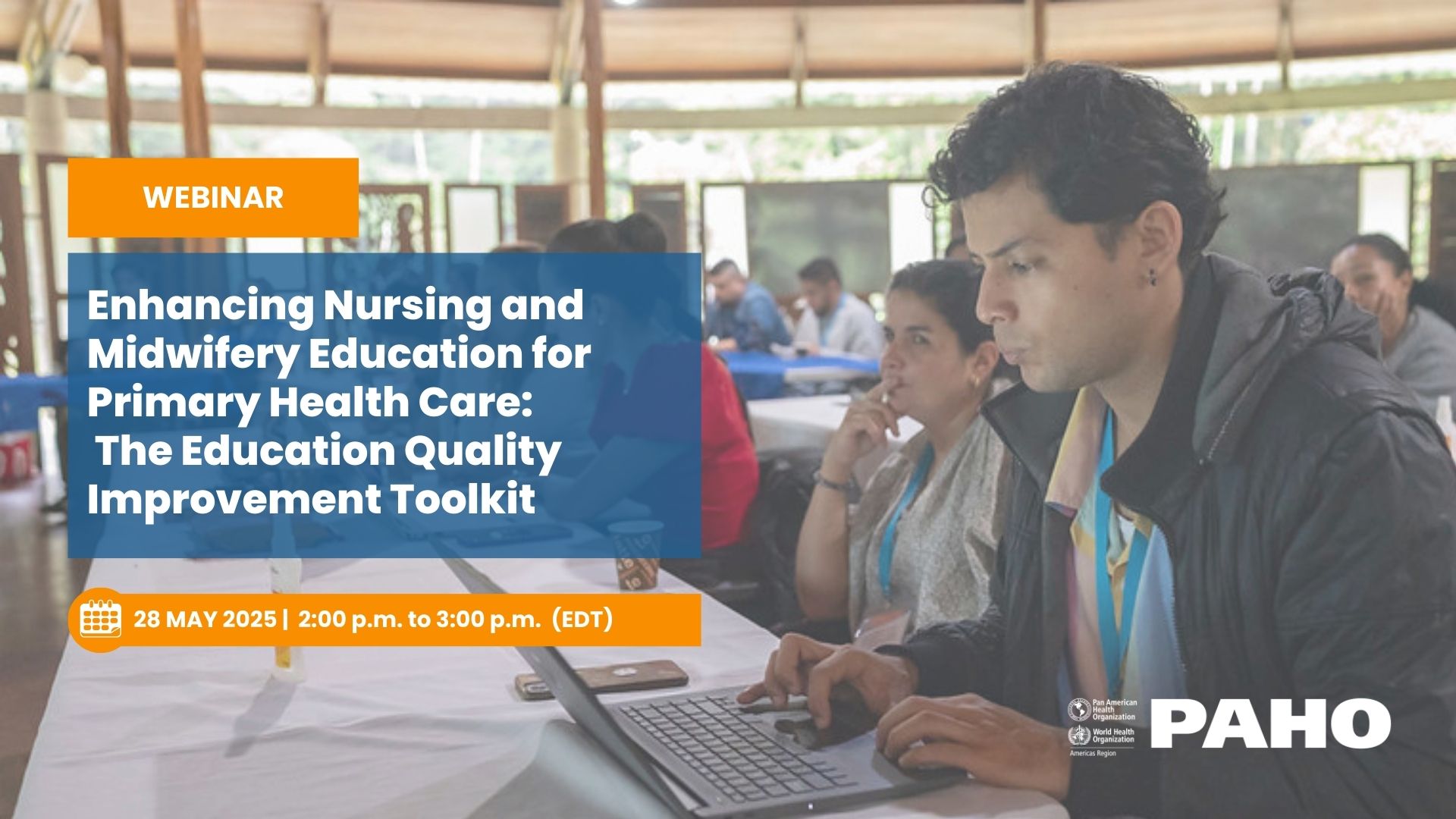
The ‘Policy on the Health Workforce 2030: Strengthening Human Resources for Health to Achieve Resilient Health Systems’, approved by the Member States of the Pan American Health Organization (PAHO), as well as the PAHO document ‘The Strategic Importance of National Investment in Nursing Professionals in the Region of the Americas’ , has called for strengthening the nursing and midwifery education, to achieve a qualified workforce to contribute to the achievement of resilient health systems, based on primary health care (PHC). By scaling up transformative and lifelong learning for nurses and midwives, advancements can be made towards the United Nations’ 2030 Sustainable Development Goals (SDG) agenda. Hence, nursing and midwifery education leaders are challenged to re-examine the preparation of their graduates in universal health coverage (UHC) and PHC, by shifting the focus, re-designing curricula, and adopting innovative teaching techniques.
The Education Quality Improvement (EQI) Toolkit was developed in conjunction with the PAHO and its Collaborating Centers to support baccalaureate nursing and midwifery education. The toolkit offers a model for a Quality Improvement Plan that can be used by educational programs in Latin American and Caribbean (LAC) countries to address UHC and PHC within the framework of transformative education and competency-based interprofessional collaborative practice. Inherent in this work is the acknowledgement that nurses and midwives who understand UHC and PHC have important leadership roles to play in health promotion, disease prevention, and reducing morbidity and mortality throughout LAC.
The EQI Toolkit, along with supporting resources, represents the collective effort of University of Alabama at Birmingham School of Nursing PAHO/WHO Collaborating Center and several partnering institutions in the Region of the Americas which contributed throughout the reviewing, critiquing, translating, pilot-testing, and evaluating phases of this project.
Through a collaborative iterative process, each pilot-test/evaluation team prioritized areas for improvement and deployed Plan-Do-Study-Act (PDSA) cycles to enhance nursing and midwifery program plans. Debriefings provided ongoing guidance, whereas focus groups gauged progress. Data on ease of use, relevance, and applicability of toolkit materials as well as enablers and barriers to utilization were captured. A refined, culturally adaptable version of the EQI Toolkit was achieved in three languages; English, Portuguese, and Spanish.
This webinar is organized by the Human Resources for Health Unit, Department of Health Systems and Services, PAHO/WHO; and the PAHO/WHO Collaborating Centre for International Nursing (USA-241) at University of Alabama at Birmingham School of Nursing.
Present a culturally-adaptable model for quality improvement in educational programs and showcase how its three versions (English, Spanish, and Portuguese) were used across nursing and midwifery schools in Latin America and the Caribbean.
Opening remarks
Education quality improvement: the case for EQI Toolkit
Pilot-testing and evaluating the EQI Toolkit: experience from Latin America and the Caribbean
Q & A
Closing Remarks
E. Benjamín Puertas, Unit Chief, Human Resources for Health, PAHO/WHO
Maria Shirey, Dean and Director PAHO/WHO Collaborating Centre for International Nursing, University of Alabama at Birmingham (UAB) School of Nursing, USA
Ada Markaki, Professor and Co-Director PAHO/WHO Collaborating Centre for International Nursing, University of Alabama at Birmingham School of Nursing, USA
Dawn Munroe, Head of School and Director PAHO/WHO Collaborating Centre for Nursing and Midwifery Development in the Caribbean, University of the West Indies – Mona, Jamaica
Paz Moscoso, Associate Professor, Universidad de los Andes, Chile
Rosangela Andrade Aukar de Camargo, Professor, University of São Paulo, Ribeirão Preto College of Nursing, PAHO/WHO Collaborating Centre for Nursing Research Development
Bruna Moreno, International Consultant, Human Resources for Health, PAHO/WHO
Yohana Díaz, Advisor on HRH Professional Education, Human Resources for Health, Responsible Officer for CC USA-241, PAHO/WHO
